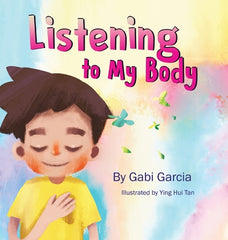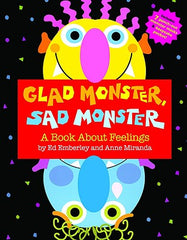I am so excited to have Eirene joining me today! Eirene is the founder of GIT Mom (Get It Together, Mom!), a nationally renowned parent coaching and advice company that empowers moms to feel in control in this totally out-of-control experience we call parenting.
I had the pleasure of getting to know Eirene when I served as a guest on her GIT Mom podcast. We dove deep discussing all things mom life and I was fascinated to learn that GIT Mom is the only coaching company in the country that focuses on the happiness of moms rather than their kids!
On a normal day, Eirene would be sharing her fail proof 7-step system that creates a harmonious home, but she’s here today to share tips on how we can all discuss the topic of mental health with our children. Let’s get started!
2020 has been…well, A YEAR. Which is why it’s more important than ever to normalize the communication around mental health. As a parent coach, I see a lot of families struggle to support their children without the right tools, but the great news is that it’s not too late to turn that bus around. With these tips for talking about mental health in your family, you’ll have everything you need to start a healthy, productive conversation in your house.
Get Comfortable Being Uncomfortable
Sometimes parents avoid talking to their children about mental illness to protect them from stress and confusion. Yet, research shows that when parents talk openly about mental health in relatable language their children can understand, it helps them get comfortable with an uncomfortable topic.
Talking to your children about mental health can help reduce feelings of stigma and judgement and pave the way for them to seek help if they need it. Being able to appraise their own well-being will also be a tremendous life skill as they grow older.
Unfortunately, too many children and youth don’t get the help they need because they haven’t been given the resources to develop this awareness. Mental health disorders can prevent children and youth from:
· Succeeding in school
· Making friends
· Reaching developmental milestones
· Becoming independent young adults
Just Because You Can’t See It, Doesn’t Mean It’s Not There
When your child is up all night with an ear infection, you don’t ignore it and pray it will just get better on its own. The same goes for your child’s extended bouts of worry, anxiety, or sadness. Just because you can’t physically see a wound doesn’t mean it isn’t there.
This really resonated with me as I was going through my third failed round of IVF and crying for 10 hours straight. My husband said to me, “You would treat a headache with Tylenol. It’s okay to take anti-depressants for your mental health.” Sometimes the mind needs an intervention to heal itself.
Never feel like a failure if you’re struggling or if your child is – just show up for yourself or for them, like you would for a struggling friend, by seeking support.
Keep It Simple
Start a conversation with your child with these tips in mind:
-
Make the discussion short – fewer words are better. Small brains can’t handle lots of big ideas.
-
Communicate in a straightforward manner in words your child uses.
-
Schedule the talk when you know your child will be calm and alert. Right before a meal or bedtime is not the right time.
-
Help your child understand that it is okay to talk about mental illness by saying something like, “Everyone has moments and days when they don’t feel like themselves. It’s kind of like having a cold but sometimes the cold just sticks around (as worry, anxiety, anger) and you need to see a doctor to make it better!”
Know Your Audience
The most important thing to consider before talking to your child is his age and developmental stage.
For Toddlers And Pre-Schoolers
At this age it’s important to teach your littles about feelings in general, and the simplest way is by talking it out after a temper tantrum. After one occurs, encourage your toddler to use words to express their feelings. For example, “I saw how mad you were. Are you sad you can’t play with your truck now?”
Another super easy way to help your child learn to articulate his feelings is by reading a book during his bedtime routine. Some of my favorites for this age group are:
· The Very Cranky Bear – about helping others cheer up when they’re not feeling so happy.
· Glad Monster, Sad Monster – walks your child through all the moods of little monsters.
· Listening to My Body – helps your little one make a connection between his emotions and body sensations. I highly recommend this one for children with anxiety.
For Primary School-Aged Children
Talking about real issues with your child (age 7-11) creates a bond and level of trust that will become increasingly important as you parent your littles into their cagier teenage years.
Easy conversation starters about how your child is feeling and thinking are:
· Are your friends being nice to you? To each other?
· Who are you sitting next to at lunch?
· Who are you playing with on the playground?
· Is anyone fighting in the group chat?
· How are you?
My favorite book recommendation for this age group is:
· Meh – it covers many levels of grief, sadness, and depression for those suffering both directly and indirectly.
For Tweens & Teenagers
Talking to your tweens and teens about their feelings can be downright awkward. But these are some of the most important conversations you will ever have with your child. More than one in five teens has a mental health disorder that causes impairment in their ability to function.
Tweens and teens often find it more comfortable to “talk while doing.” For example, you might find it easier to jumpstart a discussion while kicking a ball around in the backyard or when you’re in the car so they can stare out the window facing away from you.
But, listen, mental health disorders are treatable. And it starts with you, Mom and Dad! To treat them, we have to acknowledge them. So get educated about the issues facing your kids – don’t procrastinate because every minute counts – and help your entire family live a happier healthier life!
RESOURCES
American Academy of Child and Adolescent Psychiatry (AACAP) 800/333-7636
www.aacap.org
American Psychiatric Association (APA)
888-35-PSYCH
https://www.psychiatry.org/patients-families
National Federation of Families for Children’s Mental Health
240-403-1901
www.ffcmh.org
National Alliance for the Mentally Ill (NAMI)
800/950-6264
www.nami.org
National Mental Health Association (NMHA)
800/969-6642
www.nmha.org




